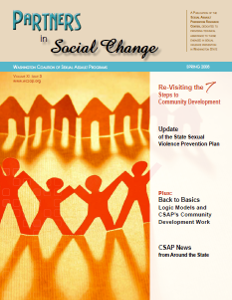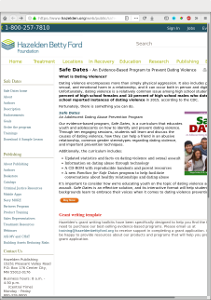An unpublished report based on a Department of Justice study titled "Preventing Revictimization in Teen Dating Relationships" has just been released, and contains some thought-provoking results. The study was conducted under the direction of Dr. Anne P. DePrince of the Traumatic Stress Studies Group of the University of Denver. Briefly, they conducted research with high-risk adolescent girls involved in the child welfare system, with the goal of preventing revictimization. They tested two…
- Prevention
- Working With Survivors
- Accreditation
- Advocacy Areas
- Culturally Specific
- Legal Resources
- Management
- Medical Resources
- SA Protection Order
- Subpoenas
- Support Groups
- Tech Safety
- Resources
- Policy
- Training

